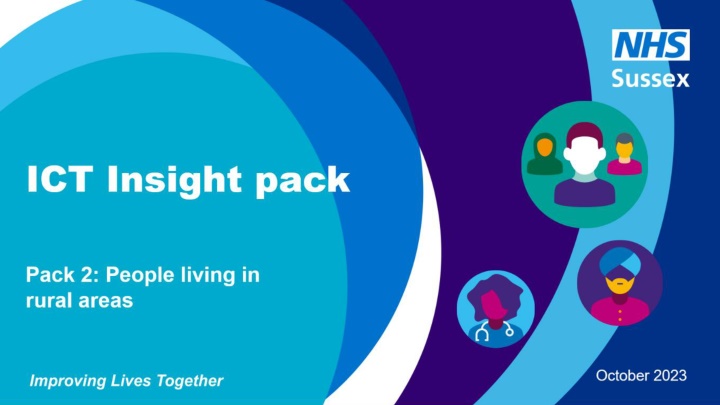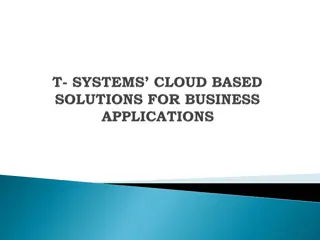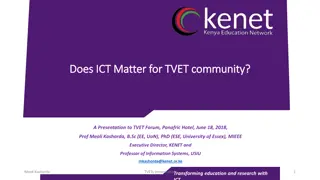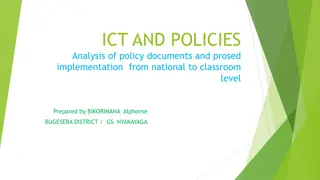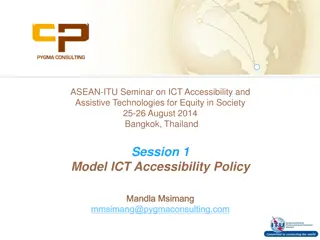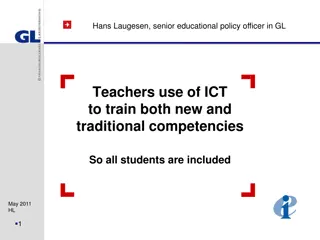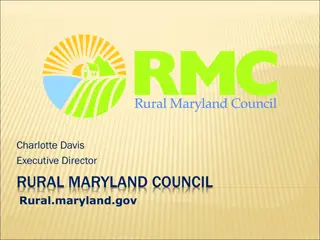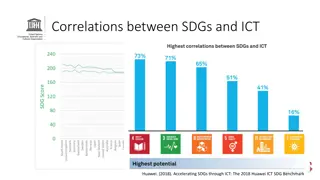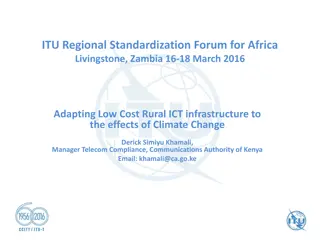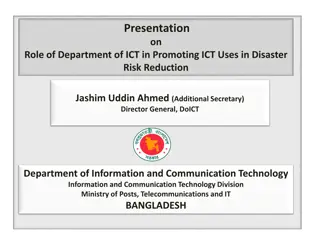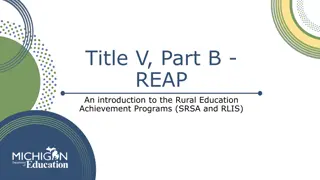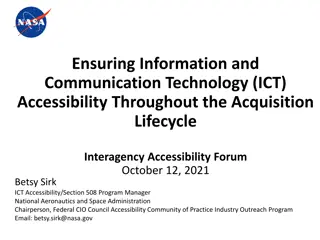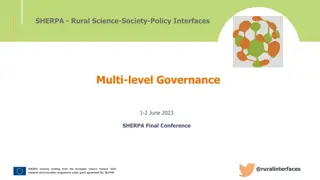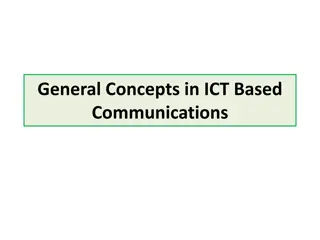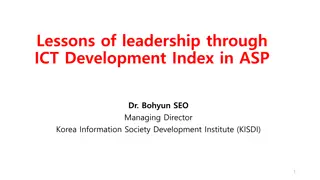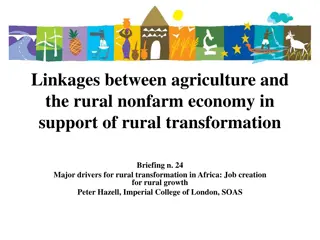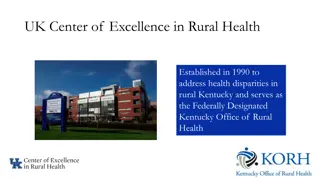Insight Pack 2: Understanding Rural Communities in Sussex
This Insight Pack delves into the unique challenges faced by rural populations in East and West Sussex, focusing on issues such as social isolation, transport barriers, and their impact on physical and mental health. Drawing insights from local sources, it highlights the importance of community engagement to drive ICT development and service improvements.
Download Presentation

Please find below an Image/Link to download the presentation.
The content on the website is provided AS IS for your information and personal use only. It may not be sold, licensed, or shared on other websites without obtaining consent from the author.If you encounter any issues during the download, it is possible that the publisher has removed the file from their server.
You are allowed to download the files provided on this website for personal or commercial use, subject to the condition that they are used lawfully. All files are the property of their respective owners.
The content on the website is provided AS IS for your information and personal use only. It may not be sold, licensed, or shared on other websites without obtaining consent from the author.
E N D
Presentation Transcript
DRAFT Integrated Community Team Insight pack Pack 2: Rural communities Oct 2023
Insight Packs Insight Packs general narrative general narrative This is Pack 2 of a series of insight packs produced to support ICTs to access key community insight that already exists. Insight packs draw on available insight related to a particular health inequality, protected characteristic, or inclusion group. Insight is drawn from the Sussex Insight Bank and other key local and national sources. It reflects a point in time: insight is captured constantly. This pack is not intended to be a comprehensive resource, but a way to understand known issues about these communities to inform your ICT development. Remember intersectionality: people and communities may have a number of characteristics, for example, an older person with physical disabilities, living in a rural area.
Using insight packs Using insight packs We are not all the same: Our communities consist of people with different needs, experiences and barriers to health Local people are valuable assets: they often have insight that can inform change and improvement, as well as suggestions/solutions Local insight can help inform and transform services, saving time and money and improving outcomes Focusing on insight from communities with poorer outcomes can help reduce health inequalities There is a need to listen to our communities, and show that their views influence change and improvement
Using your insight pack Using your insight pack 1. Decide which insight packs from the series are most relevant for your ICT (informed by both the data profiles and communities which will be common to all ICTs) 2. Identify key gaps in insight: contact the Involvement team if advice is needed on addressing gaps 3. Draw together your insight to create a what we know about our community picture 4. Ask your community if they recognise the data and insight, and ask what they feel is missing 5. Create community conversations through your Community Panel, together with ICT partners, to use insight to drive ICT design and service improvement 6. Use your insight as a checklist which changes and developments have worked? Have issues been responded to? How are communities seeing change and improvement?
Pack 2: People in rural communities Pack 2: People in rural communities East and West Sussex have a significant rural population mainly situated in the north of the counties. Surroundings Money and resources For this group, social isolation and barriers to transport can impact on physical and mental health (see right) Housing Family, friends and communities This insight pack summarises some of the insight from local rural communities held on the Sussex Insight Bank and from other sources. Work Food Education and skills
Summary Summary People living in rural settings often know most people in their local community and insight shows there is a perceived lack of privacy or confidentiality when accessing health and social care Poor transport links impact those without a car, typically older people, younger people and those on low incomes, who find themselves stranded and isolated A lack of community services and spaces in rural areas increases the risk of isolation and loneliness Telephone signal and Wi-Fi connections can be patchy in rural areas placing further barriers on access to services Specific problems have been experienced by a screening programme reliant on postal service in rural area
Access to health and social care for many rural Access to health and social care for many rural communities communities Perceived lack of privacy GP receptionists seen as gatekeepers with people feeling uncomfortable providing personal health information in order to get an appointment with a GP There are concerns that by providing health information they will become village gossip Some give examples of breaches or perceived breaches in confidentiality This situation is common where there are pre-existing relationships or connections with staff or their families working in primary care Similar concerns have been expressed about community health services Remote or telephone appointments Telephone signal and Wi-Fi connections can be patchy in rural areas leading to challenges with missing telephone GP appointments, or the call being disrupted by signal issues Many people in rural areas find that the default is to ring them on mobile phones even though they have asked for the landline to be used and would prefer that The planned BT switch off will mean that landlines are cut off completely for some
Transport issues Transport issues For those with no car access, services can be difficult to get to from remote communities. Public transport can be non-existent or poor, with only a handful of buses a day. We do need more private cars, if we are expected to go from Petworth to Pulborough. The bus stops at the railway station and then you have to walk. We are approaching winter and it is getting darker, the traffic is heavy, so you have to consider safety and the length of walk is too far about 30 minutes for me. So unsure how someone in their 70-80s will manage Community transport is variable and often not flexible enough to accommodate appointments. Patients are often reliant on the support of friends, families and neighbours which may not be available Those able to make journeys using public transports can face exposed bus stops with no seating and long walks to services, making this particularly difficult for older people and those with mobility problems. If an appointment is at 9 am, older people are unable to use their free or discounted bus travel pass Appointments late in the afternoon in winter mean travelling home in the dark which can be difficult for people in rural areas who have to travel on foot from a bus stop or train station Taxi services can be scarce and expensive
Limited places to meet and connect linked to Limited places to meet and connect linked to increase in loneliness increase in loneliness A lack of community spaces leaves many in rural areas feeling isolated A lack of activities for older people to join may leave people feeling unconnected Community lunch clubs are often reliant on community involvement Many young people have no meeting places or activities available near to where they live, and limited transport options Older people with no access to a car or who can no longer drive can become isolated People with disabilities in rural areas may be physically isolated, although may rely on online support/contacts
Cancer screening programmes Cancer screening programmes Screening programmes that rely on postal systems should consider specific barriers in rural areas Rural post boxes not emptied every day One hurdle is having to go to the post box I know this is a feeble excuse our culture has changed as to when people use the post box. Maybe some people will have completed the test and left it until they go next to the post box this could be an extra trip Issues highlighted in using bowel cancer screening for some rural community members in West Sussex Screening appointments relying on travel may be an issue due to transport difficulties
Sources (1 of 2) Sources (1 of 2) Digital and Data People s Panel minutes (2023), NHS Sussex Digital First Stakeholder Reference Group minutes (2021 2023), NHS Sussex Remote Consultation Services - Primary Care Across Sussex (2022), NHS Sussex Let s Talk About Your Experiences of NHS health and care in Sussex (2023), NHS Sussex Insight on accessing primary care using a behavioural change framework (2022-23), NHS Sussex Annual Report of the Director of Public Health, East Sussex (2023), Connecting People and Places Exploring Low Uptake of Bowel Screening by Men in Rural West Sussex (2022), Healthwatch
Sources (2 of 2) Sources (2 of 2) Winter Access Fund Project in the Havens and Rye (2022), Possability People Acute Ophthalmology in East Sussex pre-engagement report (2021), NHS Sussex Supporting wider engagement to inform the development of the new health hub in rural West Sussex (2019), Healthwatch West Sussex For reference Sussex Insight Bank
